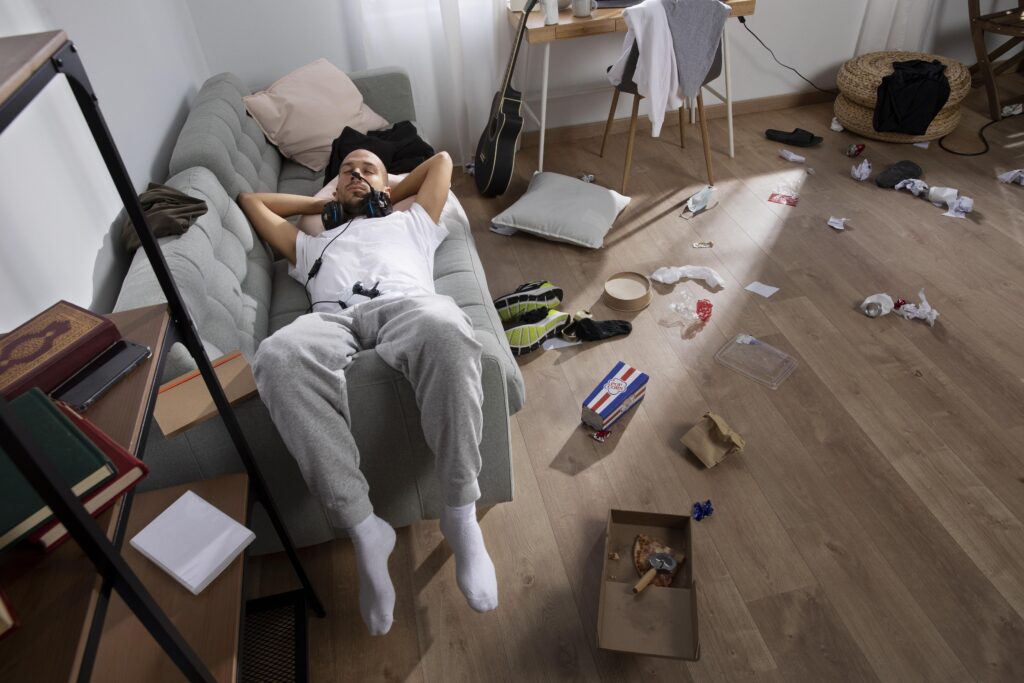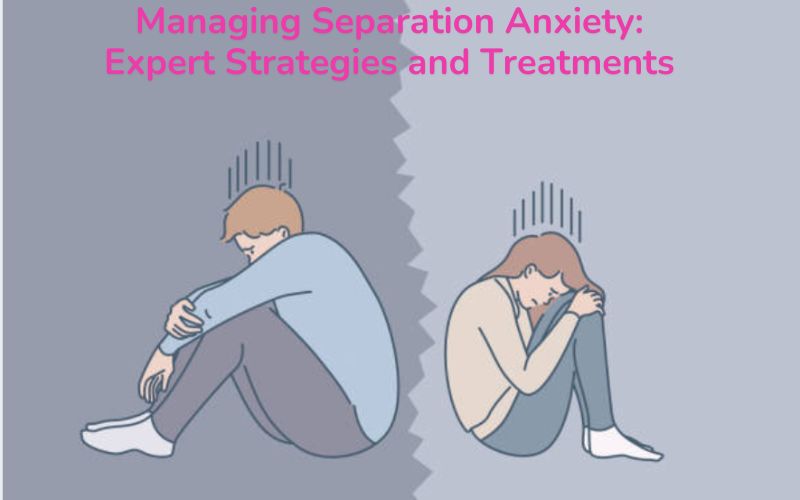Introduction
Separation anxiety is a condition characterized by excessive fear or anxiety about being separated from home or loved ones. It is a common psychological issue that affects both children and adults, and it can significantly impact daily life. In Bangalore, separation anxiety is a prevalent concern, reflecting the city’s fast-paced lifestyle and increasing pressures. Understanding the causes, symptoms, and treatment options for separation anxiety is crucial for managing this condition effectively. With the right support and intervention, individuals can learn to cope with and overcome their anxiety, leading to a healthier and more balanced life.
What is Separation Anxiety?
Separation anxiety is an emotional disorder where an individual experiences intense anxiety when separated from a person or place they are emotionally attached to. This condition is most commonly observed in children but can also affect adults. For children, it often manifests when they are separated from their parents or primary caregivers, while adults may experience it due to separation from partners, children, or even pets.
Causes of Separation Anxiety
Separation anxiety can arise from several factors, including:
- Genetic Predisposition:
- Family History: A history of anxiety disorders in the family can increase the risk.
- Inherited Temperament: Natural traits like high sensitivity or shyness can contribute to anxiety.
- Environmental Factors:
- Traumatic Events: Events such as loss, divorce, or moving can trigger separation anxiety.
- Stressful Situations: High stress levels at home, such as marital conflict or financial issues, can contribute.
- Attachment Issues:
- Insecure Attachment: Inconsistent or overprotective caregiving can lead to anxiety.
- Parental Overprotection: Overprotective parenting can prevent the development of independence.
- Temperament and Personality:
- Anxious Temperament: Naturally anxious or sensitive children are more prone to separation anxiety.
- Personality Traits: High emotional reactivity and a tendency to worry can contribute.
- Developmental Factors:
- Normal Development: Separation anxiety is normal in infants and toddlers, peaking between 8-14 months.
- Routine Changes: Starting school, daycare, or the arrival of a new sibling can trigger anxiety.
- Parental Behavior:
- Parental Anxiety: Children may mirror the anxiety of their parents.
- Parental Modeling: Anxious behavior or excessive concern from parents can teach children to be anxious.
Symptoms of Separation Anxiety
The symptoms of separation anxiety can vary depending on the severity of the condition and the age of the individual. Common symptoms include:
- Excessive Worry: Persistent and unrealistic worry about losing a loved one or being separated from them.
- Physical Symptoms: Headaches, stomachaches, nausea, and other physical complaints when separation is anticipated.
- Refusal to be Alone: Reluctance or refusal to stay alone or sleep alone.
- Nightmares: Recurrent nightmares about separation or harm coming to a loved one.
- Panic Attacks: Sudden episodes of intense fear or discomfort related to separation.
- Clinging Behavior: Excessive clinginess and dependence on caregivers or loved ones.
Impact of Separation Anxiety on Daily Life

Emotional Well-being
- Increased Stress and Anxiety: Persistent worry leads to chronic stress.
- Insecurity: Constant fear erodes self-confidence and self-esteem.
Social Relationships
- Strained Relationships: Clinginess creates tension and frustration.
- Social Withdrawal: Avoidance of social situations leads to isolation.
Education and Work
- School Refusal: Children may avoid school, affecting academics.
- Work Challenges: Adults may struggle with attending work or travel.
Daily Functioning
- Routine Disruption: Anxiety disrupts sleep and daily routines.
- Physical Symptoms: Chronic anxiety causes headaches and stomachaches.
Mental Health
- Other Anxiety Disorders: Can lead to additional anxiety issues.
- Depression: Prolonged anxiety may result in depression.
Family Dynamics
- Impact on Siblings: Siblings may feel neglected or frustrated.
- Parental Stress: High levels of parental stress due to worry.
Long-term Consequences
- Chronic Anxiety: Untreated separation anxiety can become chronic.
- Impaired Coping: Leads to maladaptive coping mechanisms.
How to Deal with Separation Anxiety
- Cognitive Behavioral Therapy (CBT):
- Identify Negative Thoughts: Recognize and challenge negative thoughts.
- Develop Coping Strategies: Use relaxation exercises and positive self-talk.
- Gradual Exposure Therapy:
- Step-by-Step Separation: Gradually increase time spent apart.
- Practice Short Separations: Start with brief periods and gradually extend them.
- Building Independence:
- Encourage Independence: Promote activities that build independence.
- Establish Routines: Maintain consistent daily routines.
- Mindfulness and Relaxation Techniques:
- Meditation and Yoga: Reduce anxiety through relaxation practices.
- Progressive Muscle Relaxation: Tense and relax muscle groups to ease tension.
- Medication:
- Consult a Doctor: Use medication like SSRIs if necessary.
- Monitor Side Effects: Regularly check in with a healthcare provider.
- Support Networks:
- Seek Support Groups: Join groups for shared experiences.
- Stay Connected: Maintain contact with loved ones for support.
- Professional Help:
- Consult a Therapist: Get personalized strategies from a therapist.
- Follow a Treatment Plan: Adhere to a professional treatment plan for improvement.
Preventing Separation Anxiety

Preventing separation anxiety involves fostering a secure attachment and healthy coping mechanisms from an early age. Strategies include:
- Encouraging Independence: Gradually encouraging children to engage in activities independently can build confidence and reduce anxiety.
- Establishing Routines: Consistent daily routines provide a sense of security and predictability.
- Open Communication: Encouraging open discussions about fears and anxieties helps individuals feel understood and supported.
- Positive Reinforcement: Praising and rewarding efforts to cope with separation can reinforce positive behaviors.
About Dr. Samyuktha Gangadhar
Dr. Samyuktha Gangadhar is a highly esteemed psychiatrist based in Bangalore, known for her expertise in treating a wide range of mental health disorders. With an M.D. in Psychiatry, Dr. Samyuktha combines her extensive knowledge and compassionate approach to provide personalized care to her patients. She specializes in addressing anxiety disorders, including separation anxiety, and employs evidence-based therapeutic techniques to help individuals achieve mental well-being. Dr. Samyuktha is dedicated to creating a supportive and empathetic environment, ensuring that her patients feel understood and empowered throughout their treatment journey. Her commitment to mental health extends beyond clinical practice, as she actively participates in mental health awareness initiatives and educational programs to promote holistic wellness. For more information and to schedule a consultation, visit Pushpa Mindcare.
Conclusion
Separation anxiety is a challenging condition that can affect individuals of all ages. Understanding its causes, symptoms, and treatment options is essential for managing and overcoming this disorder. With the right support and therapeutic interventions, individuals with separation anxiety can lead fulfilling and anxiety-free lives. If you or a loved one is struggling with separation anxiety, seeking professional help from a qualified psychiatrist, such as Dr. Samyuktha Gangadhar, can provide the guidance and treatment needed to manage this condition effectively.
For more information on anxiety treatment and to schedule a consultation, visit Pushpa Mindcare.

